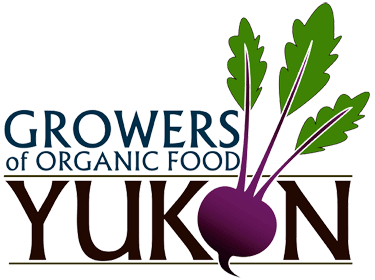Resources
Transitioning to Certified Organic Farming
Thinking about certified organic farming? The following steps will guide you through what you need to know to get started.
Read the steps here: https://cog.ca/transitioning-to-organic/
Have any project or ideas?
Tom and Simone Rudge maintain this website and welcome submission of articles or suggestions for updates. For a $50 contribution to the Growers of Organic Food Yukon, we will host a page for your farm too.
To know more, contact auroramountainfarm@gmail.com
Feeling out of the loop?
There’s a slew of great books out there. Many can be borrowed from the Public Libraries in the Yukon, or the Energy, Mines and Resources library on the third floor of the Elijah Smith building, or COG members can request books from the COG library.
Agriculture in Yukon
Have questions about farming in in a region north of 60 degrees latitude? Access resources from Yukon Agricultural Association here: https://yukonag.ca/resources/about-yukon-agriculture/
What is Organics?
As defined in the Canadian Organic Standards, General Principles and Management Standards (CAN/CGSB-32.310) “Organic production is a holistic system designed to optimize the productivity and fitness of diverse communities within the agro-ecosystem, including soil organisms, plants, livestock and people. The principle goal of organic production is to develop operations that are sustainable and harmonious with the environment”.
Read more here: https://cog.ca/about-organics/
Kids on the Farm program
The Kids on the Farm Program facilitates school field trips to local farms for students in K-12. Expect a learning experience engaging all five senses where your students can interact with livestock and their many products, work with soil and compost, learn how plants grow and how they are used, and appreciate “wild nature” as well as the “managed natural system” that is a farm.
Learn more at: http://kidsonthefarm.yukonfood.com/
Visit the Energy, Mines and Resources Library
Find the details here.
Frequently Asked Questions (FAQs)
1. HOW DO I KNOW IF THE FOOD I AM BUYING IS ORGANIC?
A: In Canada organic has a legal meaning – Canadian Organic Standards – independent inspection – what you should look for on the label.
2. WHAT KINDS OF ORGANIC FOOD ARE PRODUCED IN YUKON?
A: Vegetables, berries, hay, cannibis, meats, plus organic products from elsewhere that are processed here such as coffee and baked goods.
3. WHAT DOES IT MEAN TO BE CERTIFIED ORGANIC?
A: A farmer or gardener may use organic methods, but unless but unless those methods are inspected and “certified” by an independent, recognized body, the product can not be sold as “organic”. So in the end, if a product is labeled organic, legally it must be “certified organic”.
